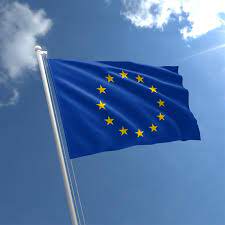As Erdogan’s ambitions grow, Europe lacks the unity and strength to defend the continent’s interests.
Relations between Turkey and the European Union are in a bad place. Josep Borrell, the EU’s foreign-policy chief, called a coming summit at which European leaders will discuss the deteriorating relationship a “watershed moment.”
Things have been going downhill for a half decade. Turkish President Recep Tayyip Erdogan announced in February he would no longer abide by a 2016 deal to keep more than three million refugees, most escaping Syria’s brutal civil war, on Turkish territory. The EU, he claims, is falling short on its financial commitments. Mr. Erdogan also routinely reprimanded EU leaders for criticizing his harsh measures against a coup attempt in July 2016. Human-rights abuses in Turkey under Mr. Erdogan’s leadership have also bred dismay in Brussels, leading to a freeze of accession negotiations and other forms of closer collaboration.
Even so, in 2020 the EU-Turkish relationship is plumbing new depths. The Turkish government allowed thousands of asylum seekers to cross the Evros River into Greece in late February, leading to weeks of violent clashes as Greek authorities sought to shore up their border. At the same time, the EU finalized sanctions on two Turkish nationals over illegal energy drilling in Cyprus’s waters. The EU claims Turkey violated Cyprus’s United Nations-enforced exclusive economic zone.
To make matters worse, in August the Oruc Reis, a Turkish research vessel, sailed with an escort of warships past the Greek island of Kastellorizo, which sits about a mile off the Turkish coast. This triggered a military showdown lasting more than a month. A subsequent collision of Greek and Turkish frigates in waters claimed by both nations prompted the French government to deploy its own warships and jet fighters to the area. The Oruc Reis returned to port on Sept. 12, but a few.
days later Turkey extended the activities of the drill-ship Yavuz in Cyprus’s waters.
Mr. Erdogan has made it clear that Turkey is no longer a secular state longing to be considered part of the West. His government has angered Christians by turning Hagia Sophia and other sacred sites back into mosques. He hosted leading members of Hamas in Istanbul, even as several Arab states were being hailed for making peace with Israel, a move he vehemently opposed. He insulted Greek Prime Minister Kyriakos Mitsotakis and French President Emmanuel Macron by calling them “greedy and incompetent” in a speech on Turkey’s Victory Day on Aug. 30, and late last year he called the French leader “brain dead.” He has intervened militarily in Libya, violating a U.N. arms embargo. And he has forged new alliances with Russia and Iran, thus thwarting U.S. and European influence in the Middle East.
The EU’s strategic thinking on Turkey is inconsistent. Greece and Cyprus, backed by France, spent the past few weeks pushing for new and wider sanctions to show that a threat to the sovereignty of one EU member state will trigger the intervention of the entire bloc. Germany, however, worries that a new raft of sanctions would exacerbate tensions with Mr. Erdogan, who in Chancellor Angela Merkel’s eyes has played a helpful role in limiting migration into Europe. Berlin’s stance is also influenced by the large Turkish-speaking minority in Germany and by the close economic ties between the two countries. Last week, Ms. Merkel succeeded in cajoling Greece and Turkey back to the negotiating table for yet another round of talks. This has made the prospect of new sanctions recede, to the disappointment of the Cypriot government.
Ms. Merkel is the only EU leader who has Mr. Erdogan’s ear, and Germany currently holds the EU Council presidency, so she is the right person to mediate between Ankara and Athens. But the idea that Germany can mediate between a fellow member state and a foreign country that threatens its sovereignty is also a problem. As Manfred Weber, a German politician who leads the conservative European People’s Party in the European Parliament, noted in an interview with Der Spiegel earlier this month: “It must be made clear that Europe and Germany are on the side of Greece.”
The pandemic has spurred a lot of talk in Brussels about “strategic autonomy,” or the need for the EU to become an independent global player in an increasing multipolar world. But if it can’t defend its own members from aggressive neighbors, these pretensions are nothing but hot air.
Source: The Wall Street Journal

